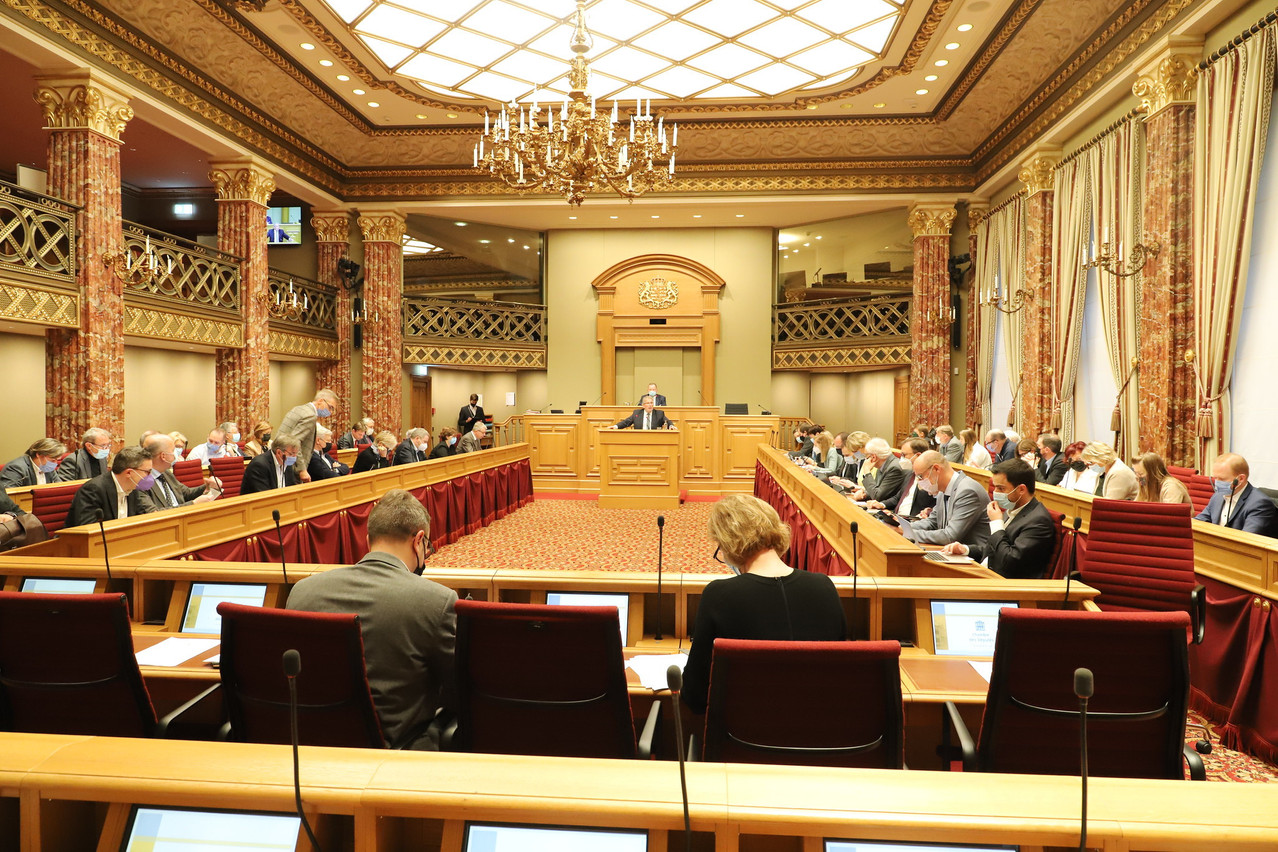The possibility of compulsory vaccination of the over-50s and health care workers is becoming more likely in Luxembourg. The panel of experts that made the recommendations last Friday presented its conclusions to MPs on Tuesday morning. The latter will debate them during a public session in parliament on Wednesday afternoon. This could lead to a bill if a majority is reached.
But is a consensus possible? The government coalition seems divided on this point. The DP, which supports the recommendations of the panel of experts, says it is in favour of compulsory vaccination for the over-50s and for health sector staff. At a meeting on Sunday evening, a clear majority was reached within the party's bodies, and this is what the leader of the parliamentary group, Gilles Baum, will propose. “It is an expert opinion, there is no reason to doubt what has been presented,” he said.
Déi Gréng also agreed with this position. Initially in favour of vaccination obligation for all, but against a sectoral obligation, the party changed tack after the experts' presentation and is now in favour of their recommendations. “We agree with their opinion because it is necessary not to introduce a disproportionate obligation”, explained parliamentary group leader Josée Lorsché. “We did not have all the information and we wanted a scientific basis. We are now convinced that this is the right approach.”
Confusion at LSAP, CSV for obligation
However, the situation seems much more delicate for the third ally in the coalition, the LSAP. In recent months, health minister Paulette Lenert has reiterated her opposition to compulsory vaccination, which she sees as an option of last resort. And new labour minister, Georges Engel, even spoke out on Monday, during an interview on Radio 100.7, against the implementation of compulsory vaccination in the short term. Contacted by Delano's sister publication Paperjam, the LSAP did not wish to communicate its official position. Under pressure from the conclusions of the panel of experts and the need for clarification in view of the debate in parliament, the socialist party seems to be in a bind.
On the opposition benches, the CSV, which had already proposed compulsory vaccination in a motion on 24 December, remains on the fence, saying it is “satisfied” with the experts' recommendations--but not quite. “According to the experts, compulsory vaccination should be partial. But we believe it should apply to all adults,” said party leader Claude Wiseler. In the event of a vote on Wednesday, the CSV, “which wants to accompany this in a positive way”, could therefore vote in favour of such a measure, but only if it is clear that the obligation for the over-50s is a first step towards a widespread obligation.
Opposition against
Scepticism remains among the smaller parties. Nathalie Oberweis (dei Lenk), who will speak in the parliamentary debate on Wednesday says her party is currently opposed to a compulsory vaccination in January 2022, but does not rule it out in the future if it proves necessary and if certain conditions are met. But there are still too many unanswered questions following the hearing of the panel of experts on Tuesday morning, according to the MP. “The experts say that it is too late for it to be effective against the omicron variant anyway, but that it will be effective for the variants after that. But which ones? It's still too hypothetical to take a position,” she says. Above all, she considers that compulsory vaccination is a solution of “last resort” and that the government has not done everything possible to reach the non-vaccinated, for example by specifically targeting the most vulnerable groups during the vaccination campaign.
The Pirate Party is sticking to the position it expressed in a statement published on Monday: in an online poll open to all members, 54% rejected a general obligation and 76% a sectoral obligation. “If there were to be a vote in parliament on compulsory vaccination in the near future, the Pirates would abide by the decision of its members and would not accept either a general or a sectoral vaccination requirement,” the party concluded.
What sanctions?
As for the ADR, the party remains unsurprisingly opposed to such an option, whether general or sectoral. “We are in favour of vaccination if it is voluntary, but we remain opposed to compulsory vaccination,” said Fernand Kartheiser. “Everyone should decide for themselves.”
In addition to the question of agreement in principle to such compulsory vaccination, the debate in parliament will also be an opportunity to address a large number of far from negligible points of detail, particularly the very sensitive issue of sanctions. After all, if there is an obligation, it will have to be enforced which is likely to provoke a great deal of discussion as to how this can be achieved.
This story was first published in French on . It has been translated and edited for Delano.
